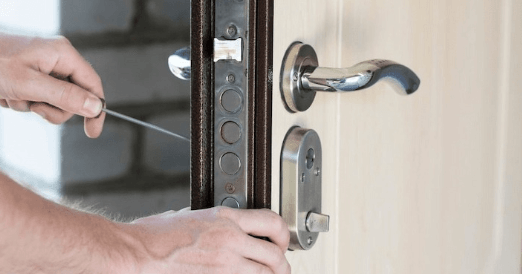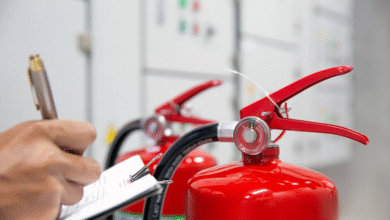Commercial Locks vs. Standard Locks: Understanding the Key Differences

Selecting the appropriate lock is critical for safeguarding a commercial building. Door locks designed for commercial purposes fulfill the requirements of companies and establishments, differing considerably from standard locks. This article delves into how door locks intended for commercial use vary from standard locks.
Key Differences between Commercial Locks and Standard Locks
Strength and durability
Commercial locks are designed to be stronger and more durable than standard locks. They must withstand heavy use and potential forced entry attempts, making them more robust and resistant to tampering.
Key control
Commercial locks offer better key control than standard locks, making it easier to manage access to a building. Commercial locks are typically designed to be rekeyed easily, allowing property managers to change the locks quickly and prevent unauthorized access.
Access control options
Commercial locks offer a wide range of access control options, including keyless entry systems, card readers, and biometric systems. These options provide more control over who can access a building and when making it easier to manage security and prevent unauthorized access.
Compliance with industry standards
Commercial locks are designed to meet specific industry standards, such as those set by the American National Standards Institute (ANSI) or Underwriters Laboratories (UL). These standards ensure that commercial locks are of high quality, reliable, and secure.
Integration with security systems
Commercial locks can be integrated with security systems, such as video surveillance or access control systems, allowing for a comprehensive approach to building security.
Examples of Commercial Locks
Mortise locks
Mortise locks are commonly used in commercial buildings, such as schools and office buildings. They are installed inside the door and offer a high level of security due to their sturdy construction and the use of a deadbolt.
Deadbolts
Deadbolts are another popular option for commercial buildings, particularly for exterior doors. They offer excellent security and are designed to resist forced entry attempts.
Cylindrical locks
Cylindrical locks are often used in commercial buildings and are known for their ease of installation and maintenance. They offer a high level of security and can be rekeyed easily.
Access control systems
Access control systems, such as keyless entry systems, card readers, and biometric systems, are increasingly popular in commercial buildings. They provide excellent control over who can access a building and when and can be integrated with other security systems for a comprehensive approach to building security.
Conclusion
Commercial locks differ significantly from standard locks in terms of strength, durability, key control, access control options, compliance with industry standards, and integration with security systems. When selecting locks for a commercial building, it’s essential to consider these factors and choose a lock that meets the needs of the organization. Mortise locks, deadbolts, cylindrical locks, and access control systems are all popular options for commercial buildings and offer excellent security and ease of use. By selecting the right commercial lock, property managers and business owners can ensure the safety and security of their buildings and assets.





